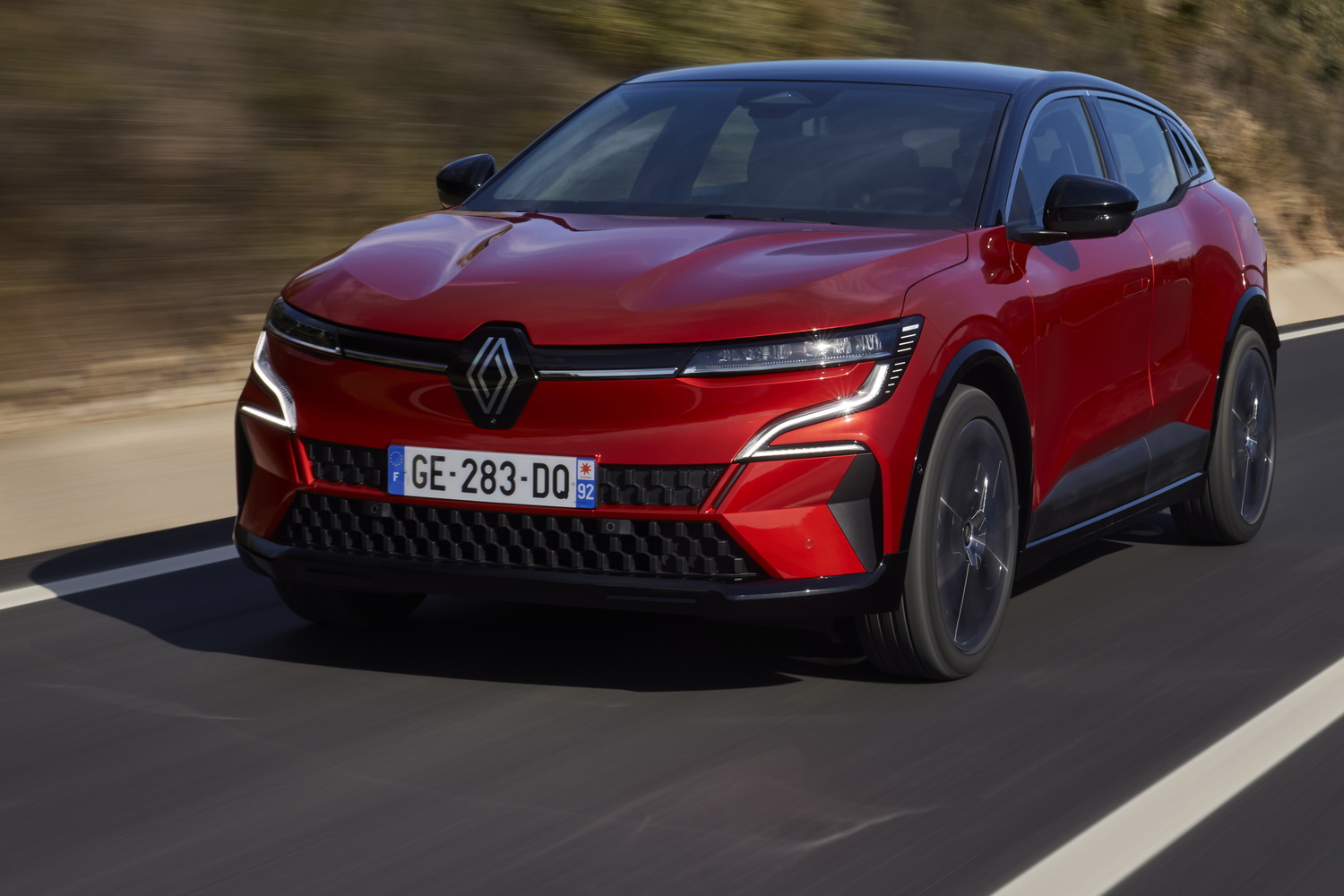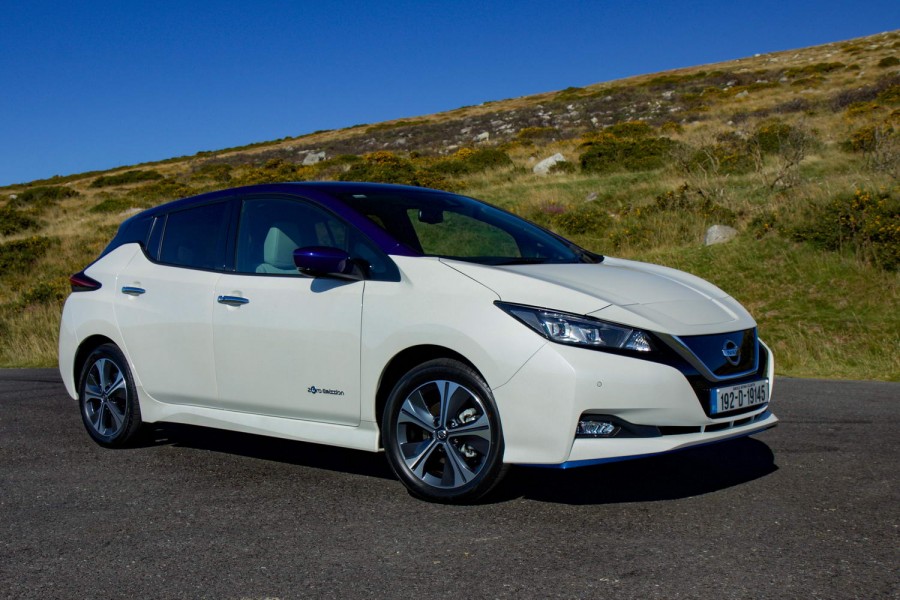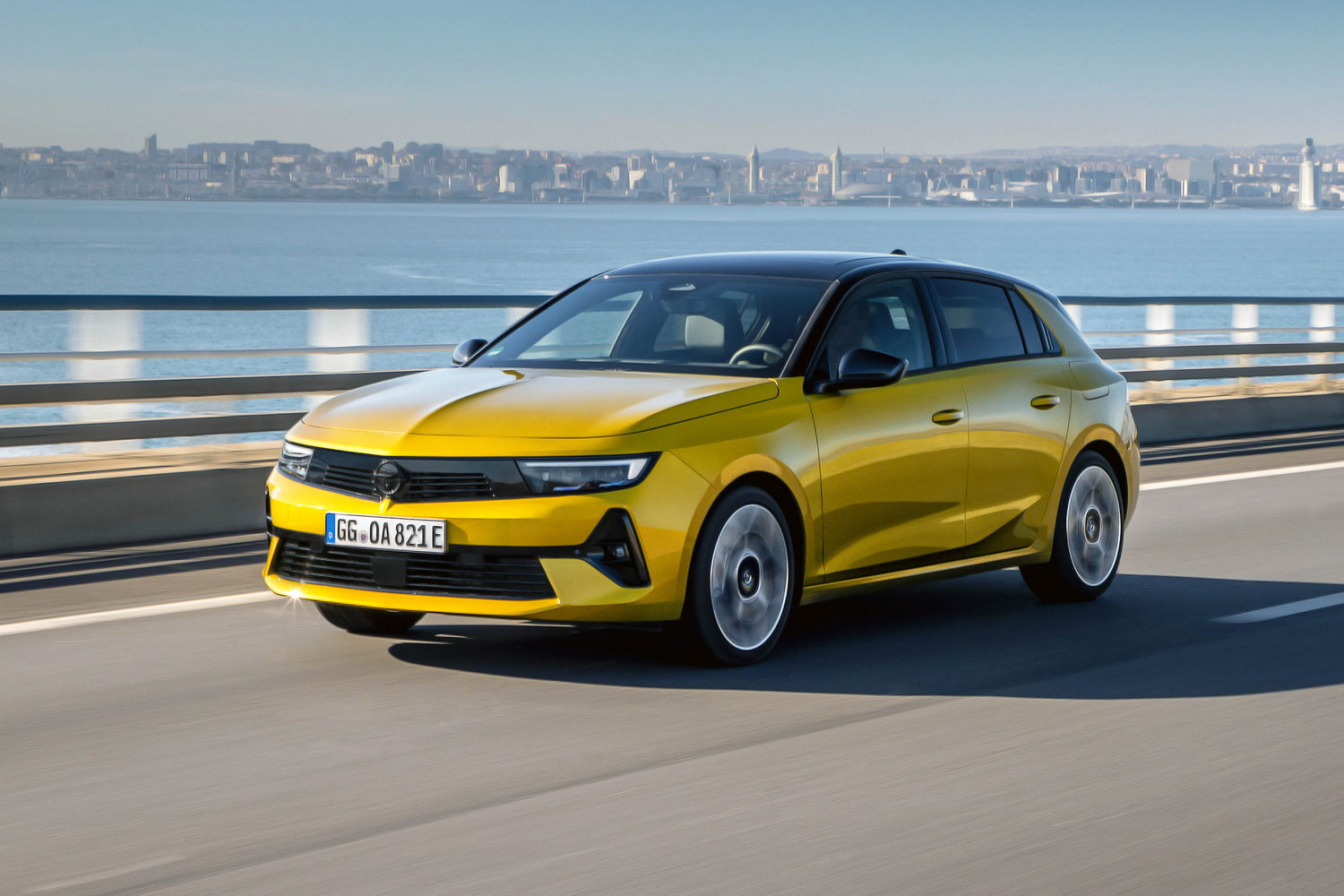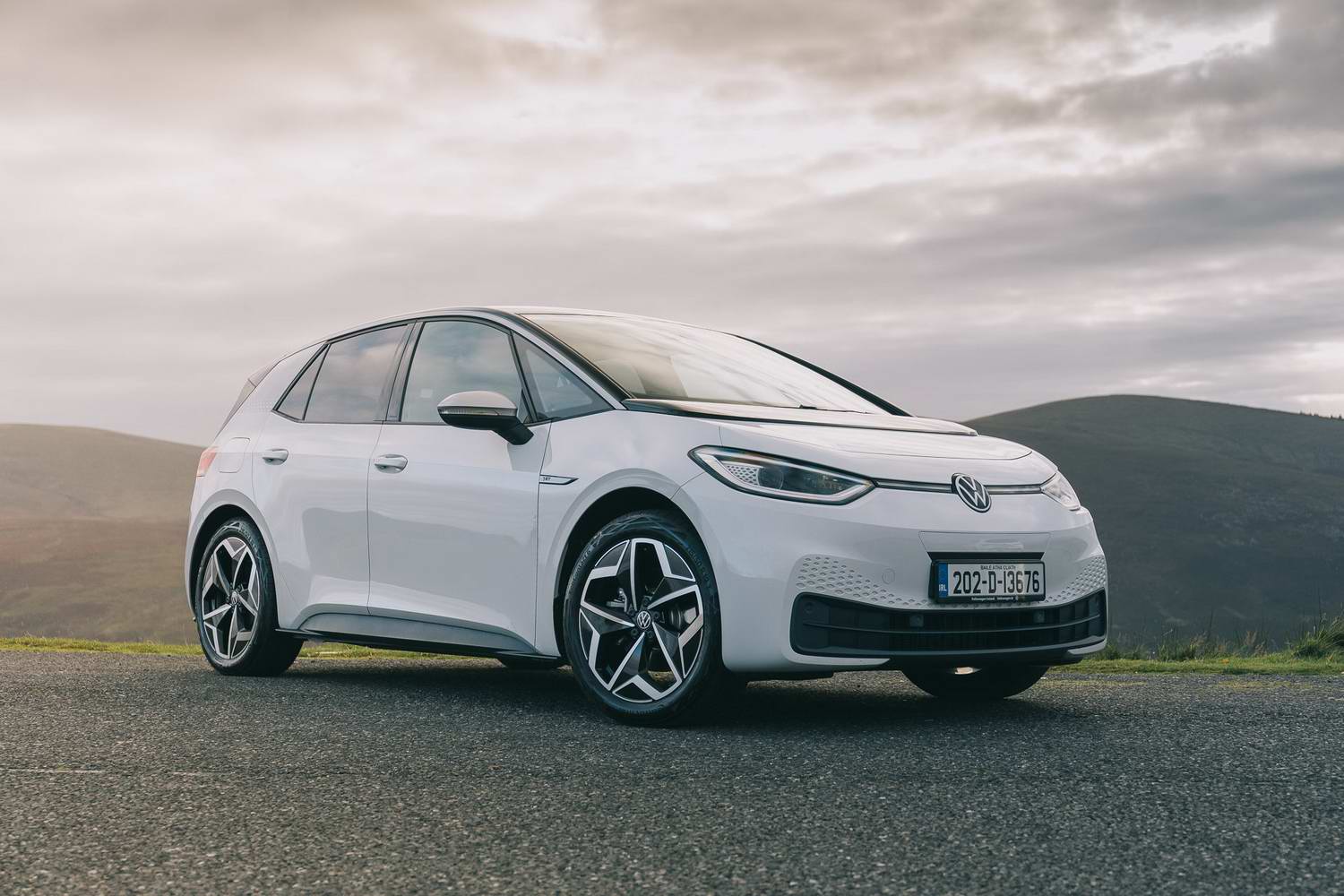Having already notched up sales of more than 400,000 electric vehicles, Renault has learned a thing or two about batteries. Now it's applying that know-how to the 2022 Megane E-Tech Electric, a car that will lead the company's EV charge and should worry some of its competitors.
In the metal
The odd thing about seeing the Renault Megane E-Tech Electric in the metal for the first time is that it takes a moment for your brain to work out what it is. Not in an identity crisis kind of way (the brand's 'Nouvel R' logo appears king-sized on the nose and is reminiscent of the Vasarely diamond the company introduced in 1972), more of a 'what segment is this car meant to be in?' sort of way.
Spoiler alert, the Megane E-Tech Electric is technically a C-segment mid-size hatchback, which in the freshly minted electric world includes the Volkswagen ID.3, Cupra Born and Nissan Leaf. However, you'd be forgiven for thinking that it could be some kind of crossover due to its styling. At 4.2 metres in length, it's on a par with the Volkswagen Golf, though the wheelbase of the Renault is a little longer.
The blocky body sections, high beltline and slender glasshouse - which uses the car designers' favourite trick of making a car appear lower than it actually is thanks to a contrasting black roof - give it stout proportions. Glossy black wheel arch surrounds, chunky sills (to cover where the battery lies) and the combination of a bluff nose and flat, scalloped bonnet come from the crossover playbook, too.
Base versions will come with 18-inch alloy wheels while our test cars were lavished with proportion-enhancing 20-inch rims. Flush-fitting front door handles add to the clean surface appearance while the rear door handles are tucked discreetly into the window frame.
Renault says that it goes against the grain of what traditional compact hatchbacks look like, and we'd agree. It's an incremental design change from the existing Megane (that will continue to be sold alongside this electric version) and hopefully paves the way for more exciting shapes from the French brand in the future.
There's no disappointment with its interior design either. In its highest specification the materials and clear upswing in quality could have you thinking you've sat into some new Lexus hatchback were it not for that bold Renault logo at the centre of the flat-bottomed and flat-topped steering wheel. Stacked air vents brace the digital instrument display that forms part of an L-shaped dashboard, with a secondary portrait touchscreen for the infotainment system. That measured 12 inches on our test cars, though many Irish-spec cars will feature a 9.0-inch version.
The good news is that the smaller screen is also shorter (i.e. not the same unit with a thicker bezel around it), which means that the wireless changing pad beneath should be more readily accessible. As for the infotainment itself, Renault has switched to a Google-based system. Better connectivity and the use of Google Maps as the navigation software are two big positives, while you can see the expected battery charge level for when you arrive at your destination ahead of time, making any charging stops that bit easier to plan.
Better placement of buttons, and higher quality ones at that, mark out the Megane E-Tech Electric as a new standard bearer for Renault cars. Other material options, such as a grey fabric that is made from recycled materials, look and feel very good too. Seating in the rear is average thanks to the flat floor and comfortable outer seats, but we'd prefer more kneeroom and if the windows were a bit taller. The middle seat is somewhat a token gesture, but it'll do in a pinch. Boot space amounts to an adequate 440 litres and there is a 32-litre underfloor compartment for holding charging cables.
Driving it
The tactile elements of driving the Renault Megane E-tech Electric underline the jump in perceived quality that has been made with this model. A steering wheel that's neither oval nor rectangular doesn't feel as unusual as, say the BMW iX's, and the switchgear is now more solid and well-weighted. A column-mounted drive selector is similar to the Mercedes-Benz approach, and actually the Renault design looks and feels better to use.
In an attempt to enhance the handling characteristics the Megane is equipped with a lower steering ratio of 12:1, which translates to fewer turns of the steering wheel from lock to lock. On winding roads you are less likely to cross your arms during more severe direction changes and the overall sensation is a car that is much more under your control. Renault has also moved more functionality to the steering wheel, including the different driving modes. The single biggest difference to driving comes when switching to Sport mode, though it's worth noting that we drove the more potent 218hp model, whereas the 131hp motor that is available with either battery size will be more sedate - to the benefit of more driving range.
Suspension and ride comfort are also deserving of praise. A certain sense of serenity accompanies the Megane E-Tech Electric thanks partly to a hushed cabin where road and wind noise are kept at bay for the majority of the time. Fabric layers between the battery and cabin floor contribute to the refinement, as does the car's slippery aerodynamics. Conventional side mirrors give a good rearward view, but the cabin's rear-view mirror is hamstrung by the low roofline and letterbox back window. A live camera feed displayed onto the mirror when its bottom tab is flipped makes a world of difference, and even if it turns out to be an expensive option it is one to consider.
If there's one single aspect of the car that most prospective buyers will want to know about when considering the Megane E-Tech Electric, it is the WLTP range of up to 470 kilometres. That's a decent figure for this size of car and to get there the Megane uses a 60kWh battery, but Renault has also paid close attention to shaving weight from the car wherever possible to improve efficiency.
While the battery may weigh 395kg, with the electric motor and associated powertrain hardware adding a further 145kg, the use of aluminium and other light materials pegs the overall weight at 1,636kg, which is around 100kg lighter than a Volkswagen ID.3, for example. Weight is one thing, but Renault is also targeting efficiency gains with items such as a new heat pump that it claims to boost performance by 30 per cent compared to the Zoe.
First impressions suggest that these appear to contribute to the Renault being reasonably good at managing how it uses its energy. Naturally there are ambient conditions and individual driving styles to take into consideration, but during our first drive of the car, which covered a variety of driving scenarios from motorways to more engaging roads - where a greater degree of the motor's 218hp was explored - the Megane still managed to average 15.6kWh/100km over 217 kilometres without any attempt to drive in a more efficient manner.
What you get for your money
Our first experience behind the wheel of the Renault Megane E-Tech Electric comes ahead of Irish pricing being confirmed. What we do know is that in Ireland the car will be available with both 40- and 60kWh batteries and a 131hp electric motor, while the 218hp motor comes only with the larger battery. Renault hasn't ruled out the possibility of offering that more powerful motor with the smaller capacity battery, as it is technically possible, although we suspect few would desire such a combination.
Official figures indicate that the 40kWh battery is capable of a combined WLTP range of 298 kilometres, while the 60kWh battery can do 470 kilometres with the less powerful motor and 450 kilometres with the 218hp version. All versions will come equipped with the 22kW onboard AC charger, which will be a boon to those using the public charging network, and the DC rate peaks at 130kW.
Summary
It is clear that a considerable amount of effort, thought and engineering has gone into the Megane E-Tech Electric. From haptics to handling this is a car that repositions Renault in the electric car market and has huge potential to satisfy car buyers. The right battery sizes and, crucially, the initial indications that the Megane could really deliver on the real-world driving range front make this a very promising car.
























